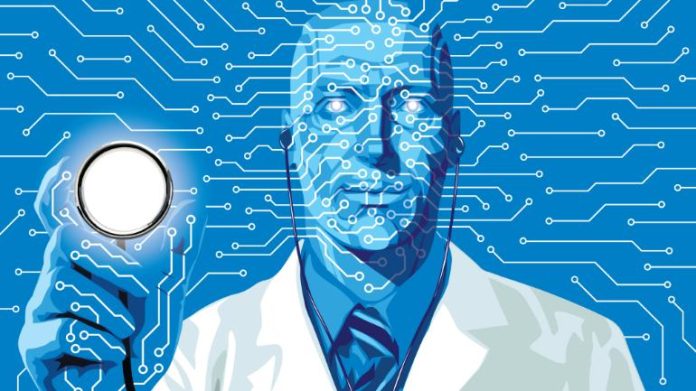American researchers have found that integrating large language models (LLMs) into medical practice does not significantly enhance physicians’ diagnostic reasoning compared to conventional resources.
A team from Stanford University and other institutions conducted the study, which JAMA Network Open published. The study reveals the complexities of incorporating artificial intelligence (AI) into clinical settings and suggests that access to advanced technology alone cannot improve medical outcomes.
Overview of the study
The trial involved 50 physicians trained in family medicine, internal medicine, and emergency medicine. Researchers divided participants into two groups: one group had access to ChatGPT Plus (GPT-4) alongside traditional diagnostic resources, while the other group relied solely on conventional tools. Participants reviewed clinical snapshots and made diagnostic decisions within a 60-minute timeframe.
The primary outcome was diagnostic performance, measured using a tool that assessed the accuracy of differential diagnoses, the appropriateness of supporting and opposing factors, and the next steps in diagnostic evaluation. Secondary outcomes included the time spent on each case and the accuracy of final diagnoses.
Key findings
The results were surprising. The LLM group had a median diagnostic reasoning score of 76%, while the conventional resources group scored 74%. This 2-percentage-point difference was not statistically significant, suggesting that the LLM did not offer a meaningful advantage in diagnostic reasoning. Additionally, the LLM group spent slightly less time on each case, but this difference was also not significant.
Interestingly, when evaluated independently, the LLM outperformed both physician groups, achieving a median score of 92%. This finding raises important questions about the role of AI in medical decision-making and suggests that LLMs could enhance diagnostic processes if used effectively.
Limitations of AI in medicine
The study highlights an important point: while LLMs can process vast amounts of information and generate human-like responses, they cannot replace the nuanced understanding and clinical judgment that experienced physicians bring to patient care. The researchers emphasized that providing access to AI tools alone does not guarantee improved performance; effective integration requires training and a deep understanding of how to leverage these technologies.
The trial’s authors called for further development in human-computer interactions to fully realize AI’s potential in clinical settings. They suggested that training clinicians in effective prompting techniques could enhance their use of LLMs, ultimately leading to better diagnostic outcomes.
Human expertise
Diagnostic errors continue to pose a significant challenge in healthcare, leading to patient harm and increased healthcare costs. The study emphasizes that improving diagnostic performance requires a multifaceted approach that combines advanced technology with human expertise. While AI can assist in gathering and analyzing data, the interpretation and final clinical decisions must ultimately rely on the physician’s judgment.
The trial’s findings support previous research, which shows that AI can augment—but not replace—human decision-making in medicine.
Implications for medical education
The implications of this study go beyond clinical practice and into the realm of medical education. As LLMs and other AI tools become more widespread, medical training programs must adapt to integrate these technologies into their curricula. Educators should focus on teaching future physicians how to incorporate AI into their diagnostic processes while ensuring a strong foundation in clinical reasoning.
Additionally, the study calls for a shift in how medical professionals view technology in their practice. Rather than treating AI as a standalone solution, physicians should consider it a complementary tool that enhances their capabilities. This approach promotes a collaborative relationship between human expertise and machine intelligence, ultimately aiming to improve patient care.
In conclusion
AI alone won’t make you a better doctor. Successfully integrating AI into clinical practice requires rigorous training, effective human-computer interaction strategies, and a continued commitment to high standards of patient care. The study emphasizes that by fostering a collaboration between AI and human expertise, the medical community can work toward a future where technology enhances—rather than diminishes—the art of medicine.



 Viesearch - The Human-curated Search Engine
Blogarama - Blog Directory
Web Directory gma
Directory Master
http://tech.ellysdirectory.com
8e3055d3-6131-49a1-9717-82ccecc4bb7a
Viesearch - The Human-curated Search Engine
Blogarama - Blog Directory
Web Directory gma
Directory Master
http://tech.ellysdirectory.com
8e3055d3-6131-49a1-9717-82ccecc4bb7a